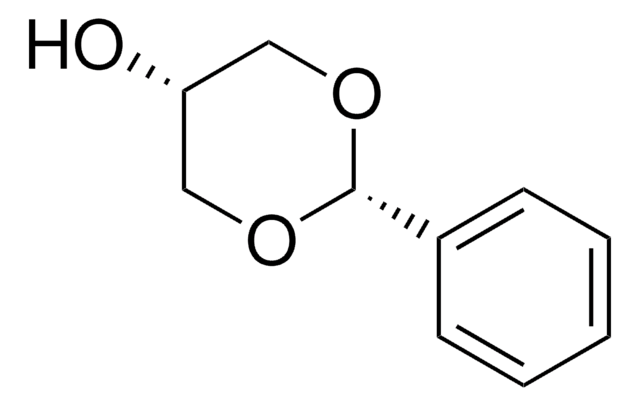66770
Methylenediamine dihydrochloride
≥98.0% (AT)
Synonym(s):
Diaminomethane dihydrochloride
Sign Into View Organizational & Contract Pricing
All Photos(2)
About This Item
Linear Formula:
CH2(NH2)2 · 2HCl
CAS Number:
Molecular Weight:
118.99
Beilstein:
3664689
EC Number:
MDL number:
UNSPSC Code:
12352100
PubChem Substance ID:
NACRES:
NA.22
Recommended Products
Assay
≥98.0% (AT)
form
solid
storage temp.
2-8°C
SMILES string
Cl.Cl.NCN
InChI
1S/CH6N2.2ClH/c2-1-3;;/h1-3H2;2*1H
InChI key
QCYJCJJCNRIMNG-UHFFFAOYSA-N
Application
Methylenediamine dihydrochloride can be used as a reactant to synthesize:
- Poly(methylene biguanides) via polycondensation reaction with sodium dicyanamide in the presence of 1-butanol.
- Didodecanoylamides by reacting with (2S)-2-methyldodecanoyl chloride via acylation in the presence of sodium bicarbonate.
Storage Class Code
11 - Combustible Solids
WGK
WGK 3
Flash Point(F)
Not applicable
Flash Point(C)
Not applicable
Personal Protective Equipment
dust mask type N95 (US), Eyeshields, Gloves
Certificates of Analysis (COA)
Search for Certificates of Analysis (COA) by entering the products Lot/Batch Number. Lot and Batch Numbers can be found on a product’s label following the words ‘Lot’ or ‘Batch’.
Already Own This Product?
Find documentation for the products that you have recently purchased in the Document Library.
Customers Also Viewed
Takaaki Sumiyoshi et al.
Journal of the American Chemical Society, 125(40), 12137-12142 (2003-10-02)
A series of 10 didodecanoylamides of alpha,omega-alkylidenediamines bridged by a straight carbon chain varying in length from 0 to 9 carbons was examined as possible gelator molecules of organic liquids to gain information on the relationships between the spacial arrangement
Nickel-catalyzed transfer semihydrogenation and hydroamination of aromatic alkynes using amines as hydrogen donors
Reyes S, et al.
Organometallics, 30, 3340-3345 (2011)
G Galaverna et al.
International journal of peptide and protein research, 42(1), 53-57 (1993-07-01)
Amide formation from acids, N-protected amino acids and peptides was achieved in an easy and convenient way by treating "active esters" such as succinimidyl or 4-nitrophenyl esters or acyl chlorides with diaminomethane dihydrochloride in dioxane in the presence of Et3N.
Poly(alkylene biguanides) as proton conductors for high-temperature PEMFCs.
Jochen Britz et al.
Advanced materials (Deerfield Beach, Fla.), 22(8), E72-E76 (2010-03-11)
'Passe-partout effect' in positive patch test reactions: a novel pattern of edge effect.
Esen Ozkaya
Contact dermatitis, 61(4), 245-247 (2009-10-15)
Our team of scientists has experience in all areas of research including Life Science, Material Science, Chemical Synthesis, Chromatography, Analytical and many others.
Contact Technical Service













